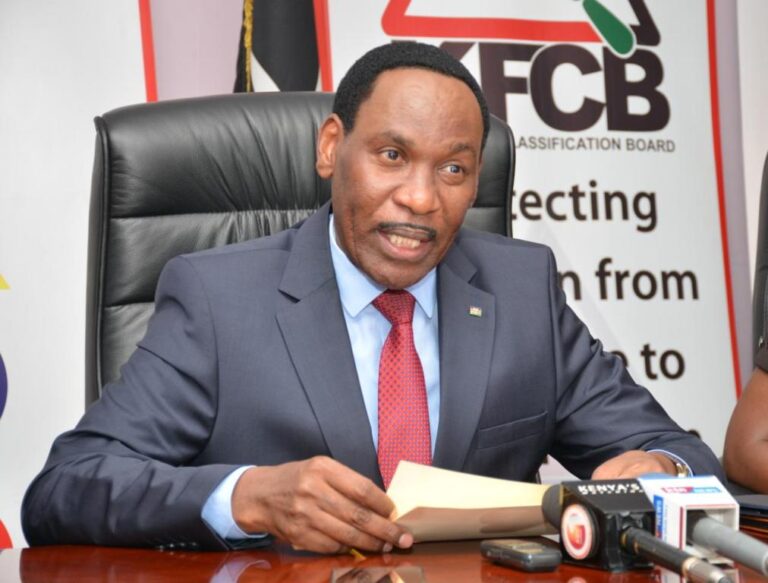- Kenyan artists have voiced their grievances to Ezekiel Mutua, the Chief Executive Officer of the Music Copyright Society of Kenya (MCSK), concerning the royalties owed to them for their viral songs.
- Mutua faced opposition from artists like Nonini, Shizo, Rufftone, Stephen Kasolo, Ziki, and others during a live discussion on Citizen TV on Monday, regarding the distribution of royalties.
- Shizo, a burgeoning talent from Western Kenya, expressed frustration over his song ‘Rhoda’ lamenting he hasnt received even a single dime for the song despite its widespread popularity and extensive airplay on various media platforms
Kenyan artists have called out Ezekiel Mutua, the Chief Executive Officer of the Music Copyright Society of Kenya (MCSK), regarding the royalties owed to them for their viral songs.
Mutua found himself at odds with artists like Nonini, Shizo, Rufftone, Stephen Kasolo, and Ziki, among others, during a live discussion on Citizen TV on Monday, regarding music royalties, which the artists claimed were unfairly reimbursed.
Shizo, a rising star from Western Kenya, poured out his frustration about his song ‘Rhoda’. Despite its massive popularity and airplay across various media platforms, he’s yet to see a single dime from MCSK, of which he’s a member. Even TikTok challenges haven’t spared the song.

Nonini, the head honcho at the Creatives Society of Kenya, dropped a bombshell, saying that MCSK and other collective management organizations (CMOs) are playing fast and loose with government directives and the Kenya Copyright Board’s (KECOBO) regulations.
According to Nonini, KECOBO has ordered these CMOs to cough up 70% of the royalties they collect to the artists.
He was taken aback to hear that some artists were allegedly pocketing a paltry Ksh. 100,000 when they should be raking in much more.
Also read:
1: Willy Paul Dramatically Arrested by Police at his Syokimau Home
2: Young Kenyan Boy Pleads With Mother To Put Cutex On His Nails: “Siko Mvulana”
Mutua faced the wrath of the artists’ grievances about the payment of owed money, but he defended the organization by stating that they had circulated a memo outlining the timeline for distributing royalties from the previous year.
“We put a notice on January 19 on how royalties will be disbursed. The process began on January 25 and will run until March 29,” he said.
He confirmed that Shizo’s song, ‘Rhoda,’ hasn’t been registered with MCSK, so he can’t earn royalties from it.
Mutua clarified that MCSK doesn’t pay royalties for TikTok or YouTube and emphasized that an artist must declare their released work to be eligible for royalties.
“When you register as a member of MCSK, you have to declare your work. Every time you do a song, you come and update. There is a form called the Work Declaration Form,” he articulated. “We don’t pay TikTok and YouTube, we pay works declared to us.
He pointed out that for songs not officially registered, artists need to make a claim with a catalog from the station, which MCSK then verifies.
Several artists expressed frustration over receiving royalties that don’t match their project expenses, while those in remote regions like Kajiado and Samburu felt disconnected from MCSK.
Ziki highlighted the disconnect between production costs and royalties, blaming KECOBO for failing artists and accusing them of inaction despite reported financial mismanagement.
In response, Sharon Wata from KECOBO apologized for any offense caused to artists and clarified that KECOBO doesn’t handle royalties, pledging to address artists’ concerns.
Rufftone thanked the Kenya Kwanza administration for prioritizing the creative sector and urged MCSK to engage artists from remote areas for better representation and support.
Ezekiel Mutua emphasized the importance of artists being aware of organizations like MCSK, comparing it to athletes knowing about Athletics Kenya, and announced plans for real-time royalty tracking technology for transparency.

